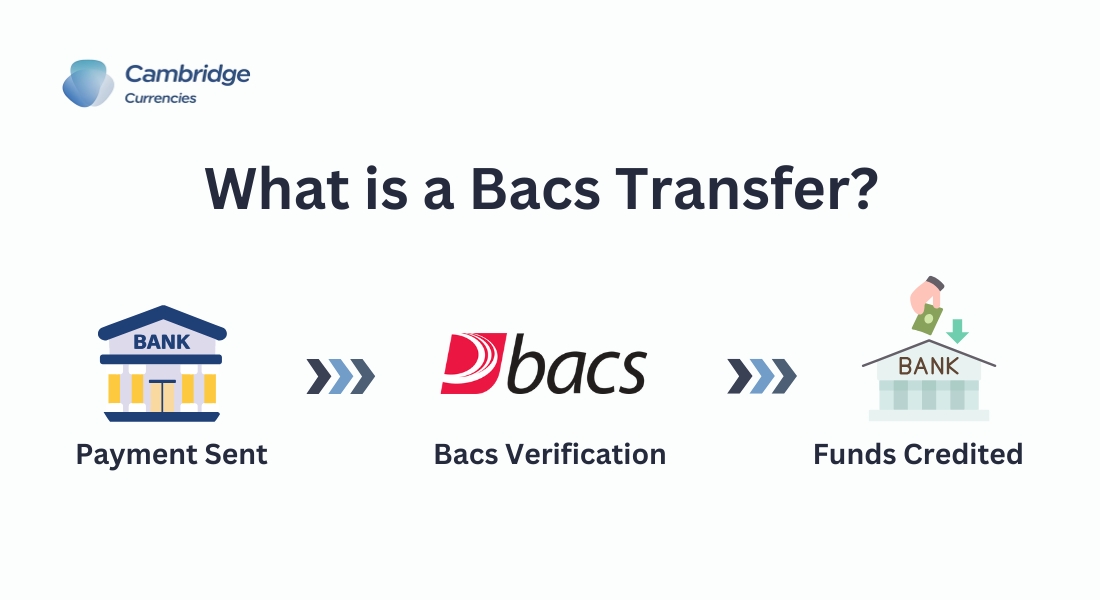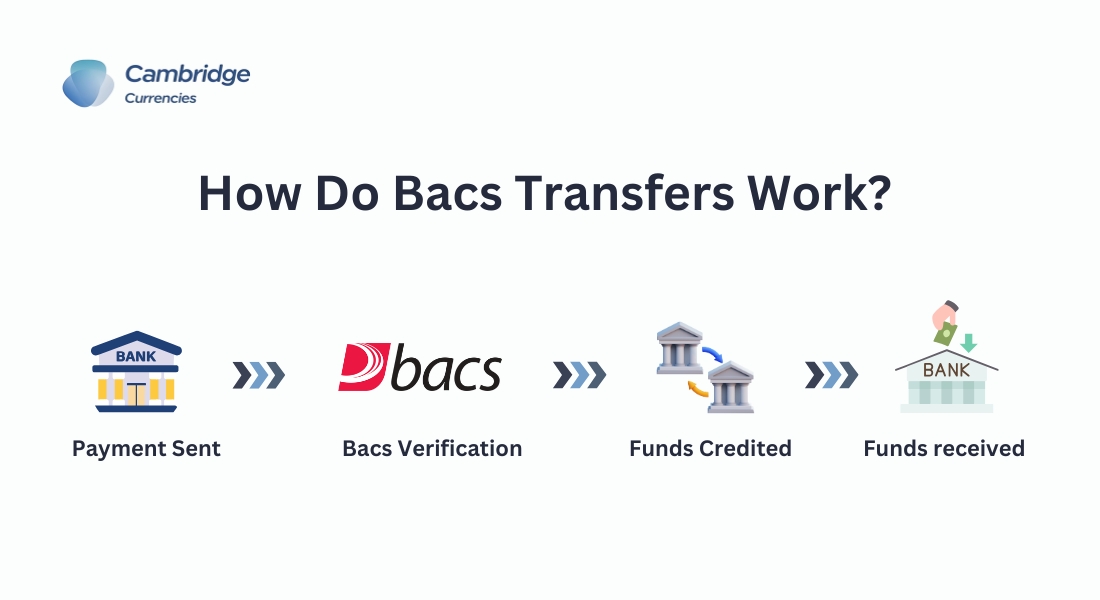What is a Bacs Transfer? A Complete Guide
Bacs payments are one of the most widely used methods for transferring money between bank accounts in the UK. This guide will explain what Bacs transfers are, how they work, and what you need to know about their processing times and costs.

What is a Bacs Transfer?
A Bacs transfer is an electronic payment made between UK banks and building societies. The term “Bacs” refers to the Bankers’ Automated Clearing System, which facilitates these transactions. There are two main types of Bacs transfers:
1. Direct Debit
A Direct Debit is an authorization that allows a business or organization to take money from your account at scheduled intervals. Common uses for Direct Debits include:
- Utility bills (electricity, gas, water, etc.)
- Subscription services (gym memberships, streaming services)
- Council tax payments
- Loan repayments
2. Bacs Direct Credit
A Bacs Direct Credit is a payment made directly into a recipient’s bank account. This is commonly used for:
- Salary and wage payments
- Pension payments
- Government benefits
- Refunds from businesses

How Do Bacs Transfers Work?
BACs (Bankers’ Automated Clearing Services) transfers are a UK-based system for sending money between bank accounts. They work as follows:
- Initiation – The sender authorizes a payment via their bank, usually online or through payroll systems.
- Processing – The request is submitted to BACS, where it is verified and scheduled.
- Clearing – The funds are debited from the sender’s account and credited to the recipient’s account.
- Completion – The recipient receives the funds, typically within three working days.
BACS is commonly used for direct debits (e.g., bills) and direct credits (e.g., salaries)
Which Banks Support Bacs Transfers?
Most major UK banks and financial institutions support Bacs transfers, including:
- Barclays
- HSBC
- Lloyds Bank
- NatWest
- Santander
- Starling Bank
- Metro Bank
- Nationwide
- The Royal Bank of Scotland
Many challenger banks and fintech companies also facilitate Bacs payments.
How to Make a Bacs Transfer
To send a Bacs payment, you will typically need:
- The recipient’s full name
- Their bank name
- Account number
- Sort code
Bacs Direct Credits are often used by businesses for bulk payments, such as payroll. Individuals can set up Bacs Direct Debits for recurring payments, such as utility bills.
How Much Do Bacs Transfers Cost?
Bacs payments are a cost-effective option for money transfers. Businesses typically pay a small fee per transaction, but personal bank accounts generally do not incur charges for receiving Bacs payments. The cost per transaction is usually a few pence, making it an affordable choice for bulk processing.
How Long Does a Bacs Transfer Take?
Unlike Faster Payments, which process almost instantly, Bacs transfers take three working days to clear. If a payment is initiated on a Friday, it will typically arrive on the following Tuesday.
Are Bacs Payments Secure?
Yes, Bacs transfers are highly secure. The Bacs system is regulated by Pay.UK, the leading provider of payment infrastructure in the UK. With robust security measures and strict banking protocols, Bacs payments are a reliable method for moving money.
Alternative Payment Methods
While Bacs is a popular and reliable payment system, there are other options available depending on the urgency and cost considerations:
- Faster Payments: Ideal for instant transfers, typically processed within seconds.
- CHAPS (Clearing House Automated Payment System): Used for high-value transactions that require same-day clearance.
- SWIFT/IBAN Transfers: Suitable for international money transfers.
Final Thoughts
Bacs transfers remain a trusted and cost-effective way to send and receive payments in the UK. Whether you’re setting up a Direct Debit for regular payments or receiving your salary through Direct Credit, understanding how Bacs works can help you manage your finances efficiently.
For businesses, Bacs offers a streamlined way to process bulk payments, while individuals benefit from the security and reliability of the system. While it’s not the fastest payment method available, its widespread use and cost-effectiveness make it a staple of the UK’s banking infrastructure.
